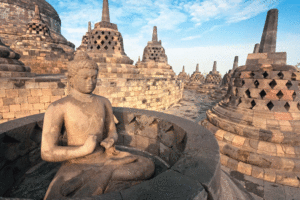During this week, Nepal has celebrated democracy day. A day of great importance for some in the country but also a day of sadness for others as they consider the defeat they suffered so many years ago. No matter if you are on one side or the other the government in Nepal remains the same, a form of democracy. A democracy is a system of government whereby the whole population or all the eligible members of the country have the right to govern directly, or to vote and choose who will rule over them. There are various forms of democracy depending on the freedom and rights of the people. However, over half of the world’s countries have a form of democracy. Even though in the past several years there has been a growing concern about the future of democracy, public support for democratic ideals remains strong, and by one measure, global democracy is at or near a modern-day high. Is it perfect? No, there is considerable dissatisfaction in many countries with how democracy is working in practice but compared to the other options a flawed democracy is the proffered government for many.
According to history, Athens is widely considered to have been the first state to develop a sophisticated system of rule in the 5th century BC, that we today would call democracy. However, it wasn’t the first nation to have a form of democracy. As early as 1100 BC the Phoenician’s had a form of it or at least a ‘governing by assembly’. One source of this is the story of Wen-Amon, an Egyptian trader who travelled north to the Phoenician city of Byblos around 1100 BCE to trade for Phoenician lumber. After loading his lumber, a group of pirates surrounded Wen-Amon and his cargo ship. The Phoenician prince of Byblos was called in to fix the problem, whereupon he summoned his assembly to reach a decision. This shows that Byblos was ruled in part at least by a popular assembly. Although we don’t know from what subpopulation the assembly was drawn or exactly what power it was equipped with, nevertheless it was a form of democracy. One of the core values of democracy is freedom of speech, of religion and of assembly. So, when people think of democracy it is in combination with the word freedom. Freedom to do whatever they want, to say whatever they like! However, Plato wrote: ‘The excess of liberty (freedom), whether in States or individuals, seems only to pass into excess of slavery.’ This teaches that freedom needs to be controlled from excesses either on one side or the other. Today, we all want freedom, we all want to feel like we are in control of our lives and our destinies. In the letter to the Galatians the apostle Paul says, ‘Stand fast therefore in the liberty wherewith Christ hath made us free, and be not entangled again with the yoke of bondage’, in Galatians chapter 5 verse 1. The apostle is speaking of true freedom that comes with knowing Christ. When someone repents of their sins and turns to Christ for salvation they are saved. With this salvation comes Christian freedom in Christ. So, the apostle is warning Christians not to turn back to their old ways or old thoughts but stay in the freedom that Christ has given them. This freedom is precious as it cost Christ Jesus his life. In this freedom they have a liberty of conscience and so he warns them not to allow a snare to be laid for their consciences. To watch and to stand against any form of diluting what freedom means. (P. Pilgrim pilgrimway101@yahoo.com)




